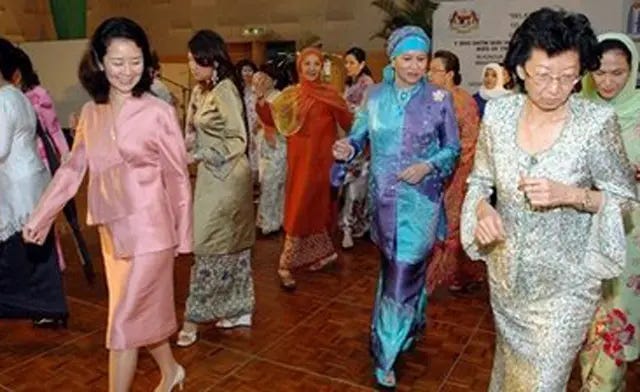Music is very much a reflection and expression of culture. Music is an artifact that provides us with a rich source of information about both culture and counter-culture. In this way music can provide insights into cultural struggles that are covert within society.
Music very much involves a sense of cultural identity. However, it’s sad to see Malaysia’s rich music heritage being suppressed. Malaysian culture was rich with music and dance. Music was very much a product of a harmonious life where all shared the enjoyment of participating. Establishment narratives have often frowned upon what was once socially and culturally acceptable, reforming Malaysian society into something very different from what once was.
This series will look at some of Malaysia’s music I was exposed to over the years. Some contemporary, some old tunes, and some rebellious pieces.
Music reminds us what Malaysia once was. An expression of a rich culture.
Poco Poco is described as originating in the Maluku Islands in Indonesia, according to Wikipedia. I was told a different story from the music department at University Malaysia Perlis where I once worked, that Poco Poco came to Malaysia from the talented Batak musicians in Sumatra.
Poco Poco was composed by Arie Sapulette and performed by Yopie Latul, who sadly passed away from Covid-19 in 2020. Both came from Ambon. The song won the 2001 Indonesian Music Award in the category of Best Disco Singer/House/Rap/Dance Music. Like many things from Indonesia, Poco Poco found a large following in Malaysia.
Poco Poco is passionately embraced by one of the Malaysian Royal families, where groups at functions have been dancing to the music for years at functions. Poco Poco became a trademark of University Malaysia Perlis and was always danced to during functions where senior staff were strongly encouraged to participate. A regular Poco Poco session was also called for a morning each week for all the university staff.
Having participated in these events, I am still after all these years trying to make up my mind whether these sessions were brilliant teambuilding activities, or a total waste of time. As of today I haven’t been able to come to a conclusion.
Poco Poco competition at Dataran Merdeka
Poco Poco was attacked by Islamic clerics as being against Islam. The cleric claimed Poco Poco originated in Jamaica and contained Christian rituals, and popular win the Philippines and Indonesia where there are many Christians.
Malaysia’s embracement of Poco Poco met with criticism from Indonesia when a Malaysian contestant Jeffri Ramli claimed on British television was of Malaysian origin.
To a Mat Salleh, Poco Poco looks very much like a line dance, where groups form and dance in a coordinated fashion. Poco Poco has both spontaneity and conformity, somewhat reflective of Malay cultural norms.
Poco Poco shows the free and participative side of Malays, a cultural trait that goes back to the old Nusantara times of the region. Poco Poco very much shows us the struggle between the Malay identity and Islamic identity.
Poco Poco is very much an expression of the suppressed Malay spirit trying to come out.
Subscribe Below:





Dance of any form of is never a waste of time, to me.